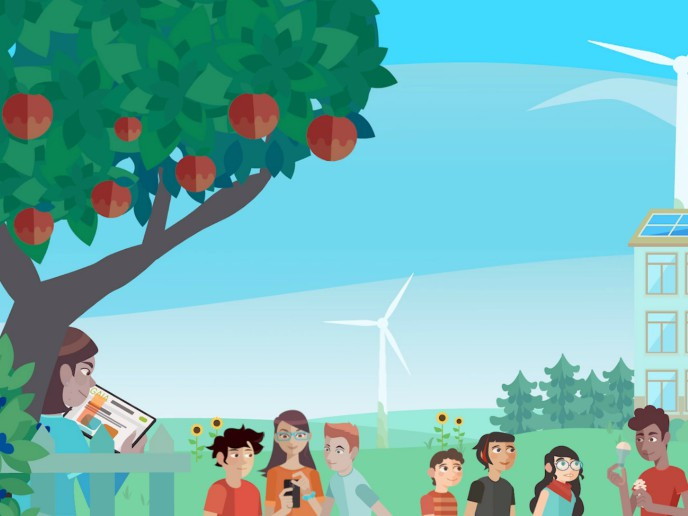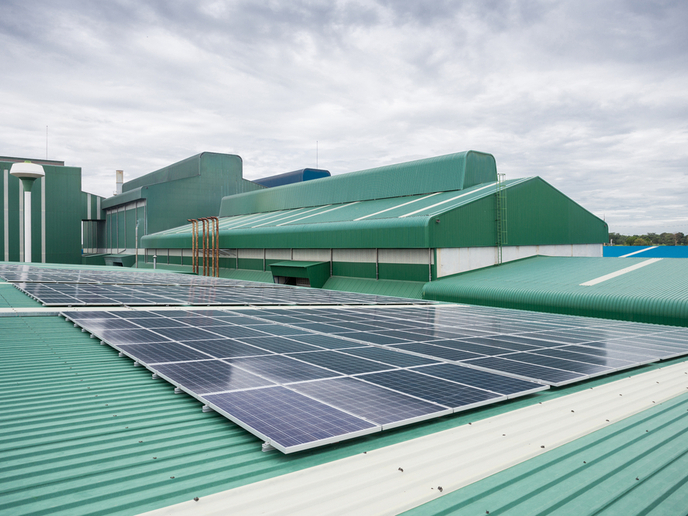Supporting European schools towards sustainability awareness and energy efficiency
The EU-funded GAIA(opens in new window) project focused on the educational community, including staff, students and parents at various levels of education, from primary and secondary schools to universities. Aside from these users, it also took into account their school buildings across Europe. “Climate change and the need for Europe to respond to the challenges of this reality motivated the project,” says coordinator Dr Georgios Mylonas. “We want to inspire students, teachers and parents so that they positively transform their behaviour concerning energy efficiency.”
Targeting energy efficiency through educational communities
The GAIA team built and installed a large-scale Internet of things (IoT) infrastructure in 25 school buildings in Greece, Italy and Sweden. The digital ecosystem brought together students and educators across Europe. The main aim was to raise awareness about energy consumption and sustainability based on real-world sensor data produced inside school buildings where students and teachers study and work. Team members used such data as a basis for integrating sustainability and energy-focused educational activities into the schools’ curricula. The IoT infrastructure installed in these buildings monitors their power consumption in real time, as well as several indoor and outdoor environmental parameters. A set of tools allows access to the data produced and provides functionality to support educational activities that were co-created in collaboration with participating schools and educators. The playful platform GAIA Challenge(opens in new window) introduces students to aspects related to power consumption and energy savings. In addition, real-time data from sensors in the buildings and participatory sensing help to visualise the real-life impact of students’ behaviour and enable competitive gamification elements among different schools. Over 3 000 students and 200 educators participated directly in GAIA’s activities throughout the duration of the project, helping to achieve energy savings by changing their behaviour. According to surveys conducted at participating schools before the project ended, 75 % of the students responded that GAIA had a positive influence on them. In terms of actual energy savings, results in the 15-20 % range were obtained in several schools. This was achieved by focusing on the part of energy consumption that can be affected by end users, while trying not to disrupt the normal operation of the schools.
Fostering a culture of energy-efficient living
“With respect to community engagement, an important factor has been competition,” explains Dr Mylonas. “Students were intrigued by the prospect of competing with their peers from other schools and countries, and were further motivated to participate in GAIA’s competitions for energy savings and related ideas.” Findings show that gamification and competition between schools across Europe can have very beneficial effects on student engagement during in-class sustainability and energy-related activities and can contribute significantly to the success of similar initiatives. The school network and the developed software tools remained active during the 2019/2020 academic year. Manuals(opens in new window) and educational materials(opens in new window) available on the project website allowed schools and educators to exploit the outcomes regardless of location. “GAIA’s environmental sustainability education and energy efficiency awareness initiatives made students understand that energy consumption is largely influenced by the sum of individual behaviours in places like the school and home and helped them to achieve substantial energy savings in practice,” concludes Dr Mylonas. “Changing their behaviour and adopting simple interventions in these settings can have tremendous impact on achieving energy savings.” The consortium continues to pursue actively new partnerships with schools and the expansion of the network formed during the project, with two new schools added in the months following the project’s end.







